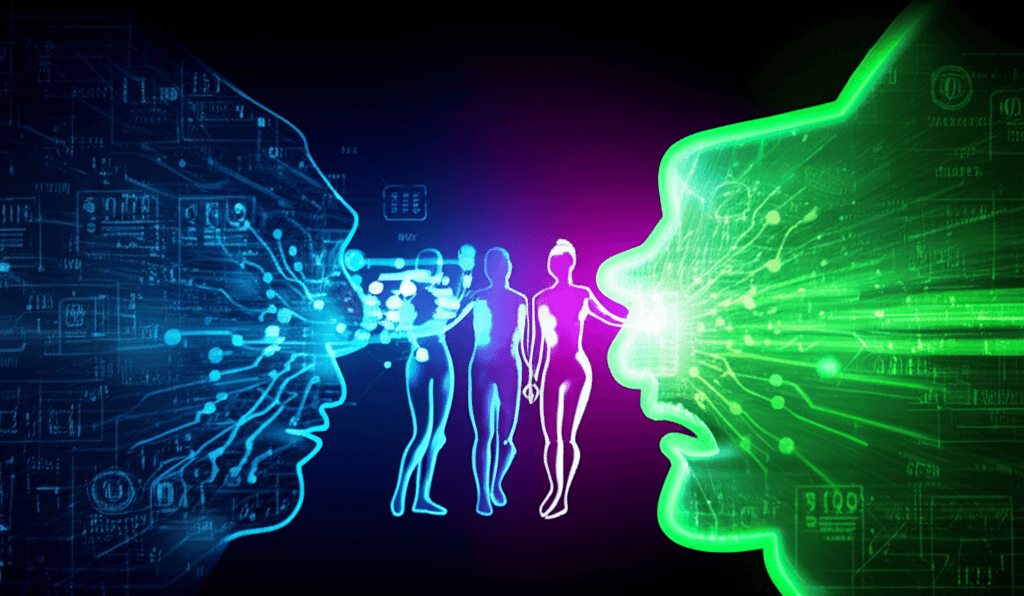Meta Raids OpenAI, Snaring Elite AI Trio in Escalating Talent War
Meta's $100M talent drive secures a key OpenAI trio, signaling an intensifying AI 'arms race' for top minds.
June 26, 2025

In a significant move that underscores the escalating "talent war" within the artificial intelligence sector, Meta has successfully recruited a trio of prominent AI researchers from OpenAI. The researchers, Lucas Beyer, Alexander Kolesnikov, and Xiaohua Zhai, had themselves been poached by OpenAI from Google's DeepMind just last year, highlighting the fluid and fiercely competitive landscape for elite AI expertise. Their latest move to Meta represents a strategic victory for the social media giant as it intensifies its efforts to compete with industry frontrunners in the race to develop advanced AI, including artificial general intelligence (AGI).
The journey of this research trio through the industry's top labs is a compelling narrative of the high-stakes battle for human capital. Beyer, Kolesnikov, and Zhai are a cohesive team with a history of impactful collaboration, first at Google DeepMind and then at OpenAI, where they were instrumental in establishing the company's Zurich office.[1][2][3] Their departure from OpenAI is the first major, public talent loss for the company, which until now seemed to be successfully retaining its top researchers despite aggressive recruitment efforts from competitors.[4] The trio's move to Meta suggests that the aggressive, well-resourced campaign personally led by Meta's CEO is beginning to yield significant results in attracting world-class talent.[5][2]
The specific expertise of Beyer, Kolesnikov, and Zhai makes them an exceptionally valuable asset for any AI lab. They are renowned for their work in computer vision and multimodal AI, which involves creating systems that can understand and process information across different data types like images and text.[6][3][7][8] All three were key contributors to the development of Vision Transformers (ViT), a revolutionary architecture that applied the successful Transformer model, originally used for natural language processing, to image recognition tasks.[9][8][10] Their research has consistently pushed the boundaries of what's possible in how machines "see" and interpret the world, contributing to state-of-the-art results on major industry benchmarks.[9][8][10] This background is critical for Meta as it aims to build more sophisticated and capable AI models that can be integrated into its vast ecosystem of products, from Instagram content recommendations to future augmented reality glasses.[11][12]
This high-profile recruitment is a cornerstone of Meta's broader strategy to reinvigorate its AI research and development efforts and establish a leading position in the field of superintelligence.[1][13][14] The company has been on an aggressive hiring spree, with its CEO personally reaching out to top researchers and reportedly offering compensation packages worth as much as $100 million.[5][2][14] This push is reportedly driven by frustration with the company's own progress and the lukewarm reception of its latest large language models.[15][2] By bringing in an established and proven team, Meta is not just acquiring individual talent but also their synergistic working relationship, which could accelerate development timelines.[16][4] The researchers will join a newly formed "superintelligence" team at Meta, which also recently brought on Alexandr Wang, the CEO of the data-labeling firm Scale AI, following a massive investment in the company.[15][17][18]
The implications of this move reverberate across the AI industry. For OpenAI, it marks a notable setback, piercing the narrative that its mission-driven culture was enough to fend off lucrative offers from rivals.[16][4] While OpenAI's CEO has publicly downplayed the threat, the departure of the Zurich-based team is a tangible blow.[11][19] For the industry as a whole, this event exemplifies the soaring value of elite AI talent, with compensation packages reaching unprecedented levels, akin to those of professional athletes.[15][16] This "acqui-hiring" trend, where companies essentially acquire entire teams, highlights a strategy to rapidly close capability gaps.[16] The intense competition for a small pool of geniuses is driving up costs and could lead to a further concentration of talent within a few large, well-funded corporations, potentially stifling innovation at smaller startups and in the open-source community.[19][20][21] As companies like Meta, Google, OpenAI, and Anthropic vie for dominance, the battle for the brightest minds is proving to be as critical as the quest for computational power and groundbreaking algorithms.[11][12]
Sources
[2]
[4]
[5]
[6]
[7]
[9]
[10]
[11]
[12]
[14]
[15]
[16]
[17]
[18]
[20]
[21]